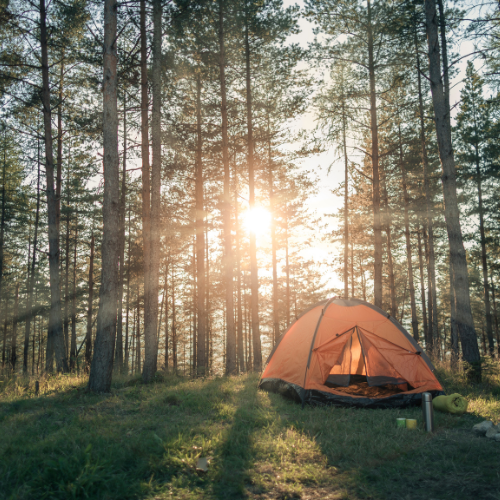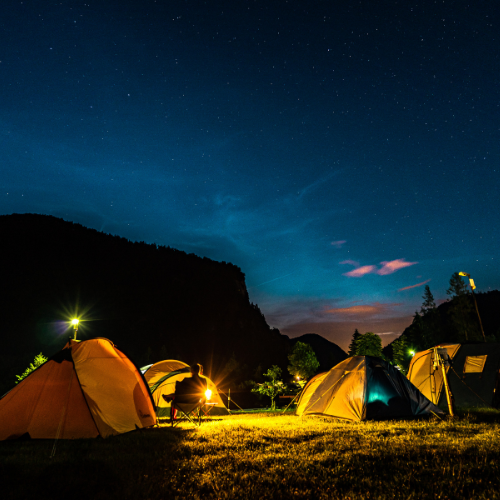7 Top Camping Safety Tips
No doubt about it, camping can be fun.
However, we all know that camping can come with a number of dangers, as can most activities being outdoors. This is not to say you can’t enjoy it, it just means you need to pay attention to your surroundings and be aware of the risks that come with it.
What are some of the most important camping safety tips you should know?
Plan Ahead
Do your research on the area you are planning to stay.
You can look into the campsite you are planning to stay at and ensure that the area around it is safe. Checking out the local amenities but also the surrounding area such as the water, hills etc.
It is also worth looking ahead to the potential weather that you may have coming. If there is a storm incoming, you may need to rethink your travel time and trip.

Pack the Emergency Kit
When you are packing ready for your trip, make sure you pack yourself an emergency kit to take with you.
It is practical for you to take 2 kids with you, 1 for first aid and the other as an emergency kit to help you our of a sticky situation.
For the first aid kit, you may want to consider the following:
- Antihistamines
- Antiseptic spray/cream
- Bug sprays and insect repellents
- Pain relievers
- Plasters and bandages
- Suncream
- Cold/hot pack
- Sterilized water packets for cleaning wounds
In your other kit you should try and take:
- Whistle
- Flashlight
- Compass
- A small Swiss Army knife
- Tweezers
Arrive at the Campsite Early
Arriving early, with ample daylight, allows you to examine the entire campsite and set up while there’s still light.
It is the best way to ensure that you are able to put your tent in a good spot and ensure the ground around the campsite is safe for you to be pitching there.
Build your Tent on a Safe Spot
Make sure your tent is flame-resistant and keep it at a safe distance from the campfire.
Try to pitch your tent on elevated land so it doesn’t flood in case of rain.
In order to keep the bugs out, make sure you close your tent immediately upon entering and leaving, you don’t want any unwelcoming guests moving in!

Go Over Safety Issues with Family Members
With the excitement of the camping trip, it is hard to remember everything. However, taking time out to have a bit of a chat with everyone about basic safety is key.
If you are camping with children it is key to remind them of the basics such as watching out for poisonous plants in the area and making sure they understand that they should never drink from any stream or river, regardless of how clean it may look.
Finally, issue each member of your family a whistle for emergency use only.
Be Fire Safe
Make sure there are no current fire restrictions before building any fire and don’t build a fire if there are strong winds. If you have enough space, make sure your fire is far enough away from the tents to ensure there is no chance of any incidents involving your tent.
When you do build a fire, keep it in the fire ring, and make sure there are no flammable items near the fire. Do not use heating devices or candles inside the tent.
Never leave your campfire unattended, and keep the area clear of leaves and twigs. Before going to bed, make sure the campfire is properly put out by drowning it in water.
Be Aware of Wild Animals
Be sure to familiarize yourself and your family with safety concerning wild animals. Wild animals have acute senses of smell and may be attracted to your site.
Make sure you keep your campsite clean and free of food or garbage which might attract them. Keep your sleeping bag and tent completely free of food and food odours, and set up your cooking and eating area at least 100 yards from your tent.
While it may seem like attention to safety takes the fun out of camping, in reality, it helps ensure that your camping vacation is a fun time for the whole family. And, isn’t having fun the point of camping?